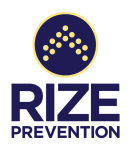In a rare but significant advisory, U.S. Surgeon General Dr. Vivek Murthy has issued a warning that alcohol consumption increases the risk of cancer and is calling for updated health warning labels on alcoholic beverages. This advisory seeks to address widespread public misinformation and align health guidelines with modern scientific evidence.
Impact of the Advisory
Surgeon General advisories are infrequent but historically impactful. Notably, the 1964 report on smoking dramatically shifted public perception and policy on tobacco use. Dr. Murthy’s new warning on alcohol has the potential to bring similar awareness and behavioral changes.
Alcohol and Cancer: A Preventable Cause
Alcohol is a major but under-recognized cause of cancer in the United States. It is responsible for approximately 100,000 cancer cases and 20,000 cancer-related deaths annually. Despite this, public awareness remains low—only 45% of Americans recognize alcohol as a cancer risk factor, though about 70% of adults consume alcohol regularly.
Dispelling Myths About Alcohol’s Health Benefits
Past research has contributed to confusion regarding alcohol’s health effects, with some studies suggesting benefits from moderate consumption, particularly of red wine. However, current scientific consensus refutes these claims, emphasizing that no amount of alcohol is truly safe for health. Even light drinking can elevate cancer risk.
How Alcohol Causes Cancer
Alcohol contributes to cancer development through several biological mechanisms:
- DNA Damage: Alcohol metabolizes into acetaldehyde, a toxic compound that damages DNA.
- Free Radical Production: Alcohol increases oxidative stress, leading to cell mutations.
- Hormonal Imbalance: Alcohol can raise levels of estrogen and other hormones linked to cancer.
- Nutrient Depletion: Chronic alcohol consumption depletes essential vitamins, weakening the body’s defenses against cancer.
- Enhanced Carcinogen Absorption: Alcohol can magnify the harmful effects of other carcinogens, such as tobacco.
Increased Risk for Women
Alcohol-related cancer risks vary by individual biology, environment, and consumption levels, but women face heightened vulnerability. Due to their smaller body size and higher body fat percentage, women metabolize alcohol differently, increasing their risk for breast and other cancers at lower consumption levels.
The Push for Updated Warning Labels
The current health warning label on alcoholic beverages, unchanged since 1988, primarily addresses pregnancy risks and impaired driving. Dr. Murthy’s advisory advocates for a new label explicitly warning about the link between alcohol and cancer. Implementing such a change requires Congressional approval, but it has strong backing from medical organizations, including the American Medical Association.
Shifting Public Attitudes Toward Alcohol
Recent social movements indicate evolving perceptions of alcohol use. Campaigns like “Dry January” and the rising popularity of non-alcoholic alternatives suggest that more people, particularly younger adults, are reevaluating their drinking habits. Surveys show that awareness of alcohol’s health risks is growing, and the demand for alcohol-free options is on the rise.
The Role of Healthcare Providers
Dr. Murthy underscores the need for physicians and healthcare providers to take an active role in educating patients about the cancer risks associated with alcohol. Increased discussion in medical settings could help correct misinformation and encourage healthier choices.
Next Steps: Calls for Action
Updating alcohol warning labels requires legislative action, but healthcare providers, policymakers, and advocacy groups can work to raise awareness in the meantime. As public knowledge grows, so too may support for stricter regulations and clearer health warnings.
The Surgeon General’s advisory serves as a wake-up call: Alcohol consumption, even at moderate levels, carries a significant cancer risk. With increased education, policy updates, and shifts in social norms, the hope is that more people will make informed decisions about their drinking habits, ultimately leading to a healthier population.
https://www.cnn.com/2025/01/03/health/alcohol-cancer-surgeon-generals-advisory

